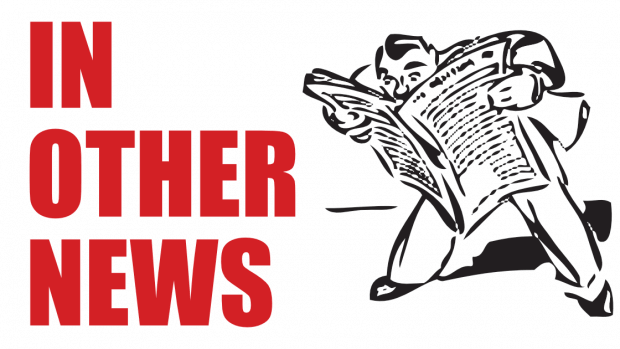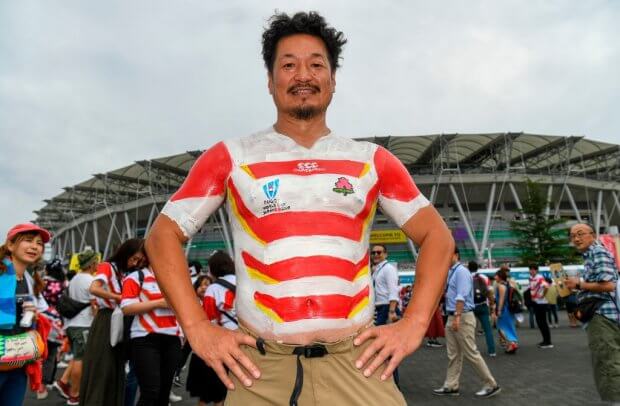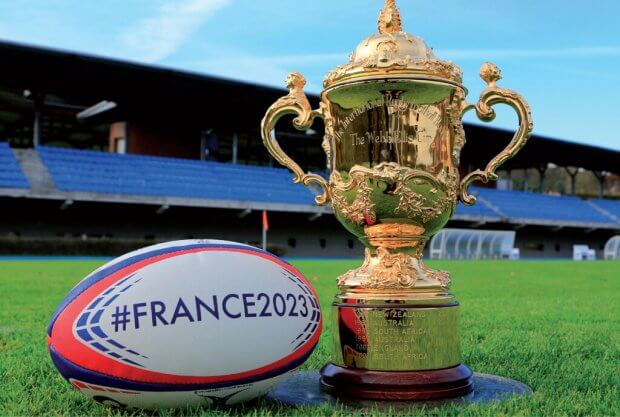Scheduled Website Maintenance
We’re currently in the process of moving to a new and improved server environment. During this transition, the website may experience brief interruptions or temporary outages.
We appreciate your patience while we complete this upgrade. Service will return to normal shortly, with improved performance and reliability.
Thank you for your understanding.
Morning, folks! Georgia Satellite has kindly written an article for you all to enjoy – many thanks, mate! I’ve added a bit of extra news in terms of matches down the bottom. Happy Monday! Chuck.
Sighnaghi, Georgia. Where the sky turns from grey to purple, the purple is actually the mighty Caucasus Mountains beyond the wine-rich Alazani Valley (credit: Georgia Satellite)
There’s been much talk about the improvement of Fiji lately, especially relative to the poor recent form of the Wallabies and Wales. But what of one of our other RWC ‘pool mates’, Georgia? Let’s remember that last year they beat Wales just before Wales very nearly beat the Wallabies. And they beat Italy, before Italy did beat the Wallabies. However, lacking consistent exposure to quality opposition, the Lelos’ preparation deficit may be a distinct disadvantage come September.
But isn’t it amazing that they’ve come this far, given their surroundings and lack of apparent rugby pedigree? Chuckles suggested that I expand on a recent comment I made about the history of rugby in this tiny Caucasian nation, so strap in, here’s my saga. For the short version (with subs), try this. For the more curious, I’ve put in a few extra hyperlinks for you to explore.
Firstly, an overview of the very rich history of Georgia. If you’re not interested, you might want to skip to the next section.
FERMENTATION NATION
It’s the birthplace of wine (c. 3,000BC), and thought to be the home of the Golden Fleece sought by Jason and co. (apparently, sheepskins were used as sieves in alluvial gold collecting). One of the most popular beers is ‘Argo’.
Known to the locals as ‘Sakartvelo’ (home of the Georgians), it has its own language family (Kartuli) and alphabet (which the Russians describe as ‘resembling spaghetti thrown against a wall’). For a country one-quarter the size of New Zealand, the geography is no less diverse. From the Black Sea coast to the west, you can reach the highest inhabited village in Europe within a couple of hours’ drive; swim and ski on the same day. There is also rolling wine country (try the Saperavi), pine forests, steppes, caves and even a desert. Oh, and the FOOD!
Try the beacon omelette for a light meal. Also, translating ‘aubergine’ can be a challenge (credit: Georgia Satellite)
Then there’s the culture: UNESCO heritage-listed singing (and here) and rather energetic dancing.
Georgia was the second ‘nation’ to adopt Christianity, soon after its southern neighbour, Armenia. Defending the faith was the predominant pastime for centuries (some would argue it still is), particularly as Islam began to surround both countries in the areas now known as Iran, Turkey, Azerbaijan and the North Caucasus (southern Russia, including Chechnya, Ingushetia, North Ossetia and Dagestan). This was no easy task, as one might imagine. So once the Russian Empire came a-conquering, offering the protection of another branch of Orthodoxy, it wasn’t such a tough task to bring Georgia and Armenia into the fold.
UGLY KID JOE
There was a brief period of ‘independence’ after the Russian Revolution, when many vassal states tried to go it alone, only to be conquered once more by the rapacious Soviet Union. As we can see today, an imperial mindset is difficult to shake. It must be noted here, though, that Georgia has always held a special place in Russian hearts, from Pushkin, Lermontov and Griboedov through to one Iosef Djugashivili, aka Joseph Stalin. He wasn’t Russian at all, having been born in the town of Gori (there’s still a museum in his honour there. Hard to shake ‘local hero’ status). Lavrenty Beria was also Georgian, so they ain’t squeaky clean.
Uncle Joe guarding his museum in Gori (photo credit: Georgia Satellite)
After the Soviet Union collapsed in the early ‘90s, Georgia went solo again, descending into civil war, mafia chaos and gun violence. The emerging president was Eduard Shevardnadze, who had been Soviet foreign minister (so no real change). The ‘Rose Revolution’ (one of Putin’s hated ‘colour revolutions’) brought one Mikheil Saakashvili to power on a pro-Western platform in 2003. Within five years, he’d pissed off the Russians to the point where they invaded and stole 20% of the country, which they still occupy. Nonetheless (and one of the aforementioned irritants), ‘Misha’ reformed the economy, strengthened the institutions and brought law and order to the streets. And the tourists (myself included) returned en masse.
Forward Pack in the USSR
What was I talking about again? Oh, rugby! That’s right. As I described in my earlier comment, there’s a traditional Georgian game (well, one tiny part of Georgia, at least) called ‘Lelo burti’ (field ball). It’s basically a pushing game between two villages with a nominal ‘ball’ made of leather, about the size of a pumpkin and weighing around 2.5kg. It’s played at Easter time and, like all good Georgian pastimes, is basically an excuse to get hammered and eat yourself into a stupor. The game now lends its name to the Georgian national rugby team, the Lelos, and is also the word for a try. When pressing the line, chants of “Lelo, lelo, Sakartvelo” can be heard from the stands.
Georgians love contact sports. They have a disproportionate number of Olympic judo medals for a country of 3.5 million. They’re also good at wrestling, weightlifting etc. There are a few who are built for speed but, a passion for soccer notwithstanding, they never put up much of a showing. So rugby seemed a natural fit, and this was evidently observed by an ethnic Armenian bloke from Marseilles named Jacques Haspekian.
The ‘Frenchman’ got the oval ball rolling in late 1959 in Tbilisi, and by 1962 there were 13 teams across the country. Georgians began to fill the Soviet team, along with players from the other hotbed of rugby the region, Krasnodar, Russia. This is just on the other side of the Caucasus Mountains, so it’s not surprising that the physiques and skill sets are similar.
A ‘Soviet Cup’ was introduced in 1976, which a Georgian club side won for the first time in 1978. The winning form of Georgian clubs continued throughout the ‘80s, but was naturally dealt a blow by the civil war. In 1993, Georgia was accepted as the 52nd member of the then-IRFB.
They have a keen sense of humour. The now-defunct ‘Rugby Pub’ in downtown Tbilisi (credit: Georgia Satellite)
Indicative of how poorly-resourced the game was at the time, Kiwi coach Ross Meurant, who came along in 1997 to consult with the under 19 squad, discovered that the national side possessed a total of two practice balls and were using repurposed tractors as scrum machines (Richards, 2007).
They didn’t qualify for the 1999 RWC, but by 2001 were the 7th-ranked team in Europe. Many will remember hearing about the country for the first time when Georgia arrived in Australia in 2003 for their first Rugby World Cup. In 2007 they won their first RWC match.
Modern Mountain Men (and Women)
The 2010s saw the era of man-mountain Mamuka Gorgodze who was so popular that you could use just his first name and anyone would know to whom you were referring. Meanwhile, the billionaire one-time president, Bidzina Ivanishvili (who owns an eyesore edifice overlooking Tbilisi which resembles a Bond-villain’s lair, and who is known as an eminence grise in Georgian politics), decided to throw an absolute fortune at the game, funding amazing new facilities and bringing in another Kiwi coach, my mate Milton Haig.
In 2015, they beat Tonga 17-10, but also faced New Zealand in Cardiff (a game that I was fortunate enough to attend), with the Georgians actually scoring a try to level the score (they went on to lose 43-10, but it was still an enjoyable match). They finished third in the pool, thereby automatically qualifying for Japan, where they finished fourth in a strong group: Australia, Wales and Fiji getting the better of them.
Georgia v Russia, Dinamo Stadium, Tbilisi, 12/3/17 (I was one of 55,000 spectators and still managed to bump into my landlord). Georgia won 28-14 (credit: Georgia Satellite)
This year they enter the tournament in a similar group, the difference being that they beat both Italy and Wales in 2022, something the Wallabies respectively failed to do and only just did. As usual, the Lelos are starved of quality opposition coming into the tournament. They get to play in the second-tier 6 nations every year, where the only quality opposition comes from Romania, and then only occasionally. They’re more suited to play teams from the Pacific Islands and Japan, but are usually pitted against Canada or the US, if they can get a game at all. Thankfully, the European Tier 1 sides are taking them more seriously in autumn, but that doesn’t help them in a build-up to Bill.
Imagine if they beat us too! (credit: Georgia Satellite)
The Wallabies definitely need to be wary of Wales and Fiji come next month, but should ignore the Lelos at their peril. Their scrum can compete with any Top 10 sides, and the backs are coming along nicely skills-wise.
Satellite Launched
As a footnote to all this, you might be curious as to how I ended up there. And for those of you who either weren’t there, or don’t remember the ‘80s, here is from whence I took my ‘stage name’.
My wife and I travelled there from Moscow with some other Aussie friends in 2014. This was after the initial Russian annexation of Crimea, and I was looking for a change of scenery. Georgia just captivated me. I still remember exactly where we were being driven by a guide when I had something of an epiphany: “I shall bring touring club sides to play rugby in Georgia!” I had long harboured a desire to operate a tour company, and the conditions in Georgia seemed ripe for the picking. The legendary Georgian hospitality didn’t do much to dampen this, either. That morning, I had asked the hotel owner if he knew where I could buy a Lelos jersey for my nephew and upon our return, he presented me with a strip that his brother, who had played for the national side, had insisted on giving to me.
After a year of cajoling my missus and putting plans into place, we made the move, and Georgia Rugby Tours was born.
(Logo design: Georgia Satellite. Creation: Nanuka Gogabera)
Despite all the conditions being right, I was missing one thing: business acumen. I gave up my ‘day job’ in 2018, giving it a year to make something happen. By the time it hadn’t, we’d had just about had enough anyway after four pretty fun years. With a young fella in tow, we needed to be closer to one of our families, with language-immersion and educational possibilities in mind. Meanwhile, Moscow had become quite awesome since the Soccer World Cup in 2018: customer service and decent coffee had arrived, car sharing, taxis and public transport were fantastic, and we already owned our apartment, which we’d been renting out. Obviously, a pandemic and a war were yet to come, life goes on.
I’ll always treasure our time there, and don’t regret it for a second. And if anyone is considering taking a touring team there, you won’t regret it either. I can put you in touch with another operator on the ground, or you could be my first customer (the business is still registered)!
Thanks for reading. Interested in your thoughts on any or all of this.
PS It’s not just big, hairy blokes playing.
Members of the Georgian Women’s Sevens team take a shine to my son (4:30am Tbilisi Airport, May 2018) Credit: Georgia Satellite
Richards, Huw 2007 A Game for Hooligans: The History of Rugby Union, Mainstream Publishing, Edinburgh

Rugby News from the World
England (19) lost less than Wales (17) did – match report here
Owen “I see red” Farrell, well, saw red for his blatantly illegal dogshot poor tackle attempt on a hapless Welsh player. As written in this article from the Guardian, “Owen Farrell’s critics, and he has always had his fair share, will say it has been a matter of time but had Steve Borthwick made a list of scenarios to be avoided at all costs for this block of World Cup warm-up matches a red card for his captain for a high tackle would have been top of it. Farrell is facing a ban at a disciplinary hearing that will almost certainly rule him out of the start of the World Cup. Mitigation will be limited given his previous and as he has already attended tackle school he cannot return. Make no mistake, this is a colossal headache for Borthwick.”
Argentina and Japan will be cheering. Now, if only there was a way to sort out Dan Biggar and his appalling behaviour towards referees…
France 30 def Scotland 27 – match report here
The Scots have shown that Pool B could well join Pools C and D as “Pools of Death” at the Bill, which starts in 26 days! It was by no means a comfortable win for the hosts, who started slow in this test. That could be expected as head coach Fabien Galthie made 13 changes for the game selecting all of his top talents for the first time in the build-up to the Rugby World Cup, some of whom played their first game since June.
It may have been rusty, but spare a thought for the passing of this particular Gilbert who burst in the skies above St Etienne. Apologies for the link to the “OG Other site”, but I was too lazy to find another video.
Georgia 56 def Romania 6 –
Portugal 46 def USA 20
Namibia 28 def Chile 26 – match report here

Pieter Labuschagne
Japan flanker, Pieter Labuschagne, appeared before an independent judicial committee on Thursday 10 August, after receiving a red card for a dangerous tackle (Law 9.13) in Japan’s Rugby World Cup warm up match against Fiji in Tokyo on 5 August 2023.
The committee, having considered the player’s submissions and reviewed all available evidence, found that the red card threshold had been met and that the red card was therefore upheld. The committee noted that the offence carries a mandatory mid-range sanction (six matches) and having considered the mitigating factors reduced the sanction by the maximum mitigation of 50 per cent. The final sanction is three matches as follows:
- Italy v Japan – 26 August 2023
- Japan v Chile – Rugby World Cup 2023 Pool D match – 10 September 2023
- England v Japan – Rugby World Cup 2023 Pool D match – 17 September 2023*
*The player intends to apply to take part in the World Rugby Coaching Intervention Programme to substitute the final match of the sanction for a coaching intervention aimed at modifying specific techniques and technical issues that contributed to the foul play. Further information can be found here.
For more information on how the Chocolate Wheel of Justice disciplinary process works, have a gander at the video here

Rugby World Cup podcast
On its mission to make the sport more accessible to more people more of the time, World Rugby Studios has produced its first-ever Rugby World Cup podcast in partnership with Asahi Super Dry, with the first episode released in 50 days to go before Rugby World Cup 2023 kicks-off in France.
The Official Rugby World Cup 2023 Podcast presented by Asahi Super Dry will feature an incredible array of talent from across the rugby world and beyond joining host and BBC Morning Live presenter Gethin Jones to discuss rugby’s biggest tournament on earth and all the things it embodies.

